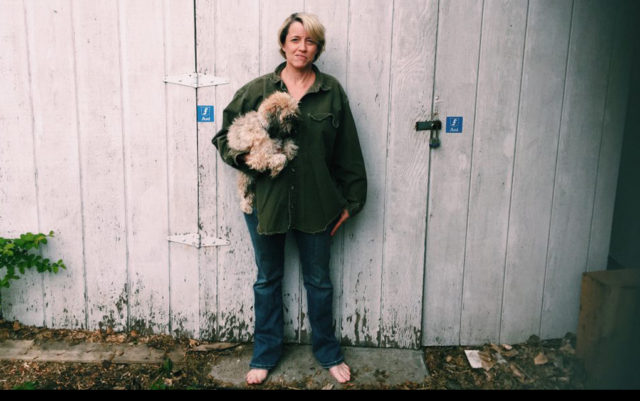
When Laura Douglas and her family bought a new house in Northwest Denver last year, she couldn’t believe all the junk she had accumulated in the previous decade — tools, garden equipment, ski and camping gear, even a bouncy house to celebrate her kids’ birthdays.
“When we moved I had a garage full of crap and I didn’t know what to do with it,” she says. “I thought about getting rid of a bunch of it. … It’s useful but I don’t use it so much anymore.”
But she hesitated to just get rid of all her excess stuff. In 2014 alone, the U.S. generated 258 million tons of waste, 166 million tons of which, including household furniture and appliances, ended up in landfills.
Lucky for her, the Denver-based company Fluid Market launched in July 2016 with a simple premise: using a mobile app, neighbors can borrow or lend household tools and equipment from neighbors for a small fee and all covered by the company’s million-dollar insurance policy.
“All of the stuff that I didn’t know what to do with is now being borrowed by all my neighbors,” Douglas says. “Not only is it bringing in passive income, but I’m learning things about my neighborhood and meeting new people.”
In the last 10 months, Fluid Market has enlisted more than 10,000 users in the Denver Metro area, including a couple hundred in Boulder County. Following in the footsteps of larger collaborative-consumption companies like Uber and Airbnb, Fluid has a rating system, secure payment software and private messaging function that creates a shared platform for users to rent anything from gardening tools to pickup trucks.
A 2016 Pew Research poll revealed that 72 percent of Americans have used some sort of shared or on-demand service through a mobile app, mostly people under 45 who live in or close to urban centers. And as researchers and economists try to figure out the shared economy (or gig economy) of recent years, Fluid is capitalizing on it by giving users access to consumer products without the hassle of purchasing items themselves.
“We’ve been forced to go out and buy everything, and through mass manufacturing it’s made it cost effective where we can do it,” Fluid Market CEO James Eberhard says. “But it goes back to the question of should we do it?
“[Fluid] changes the whole parameters of ownership,” he continues. “It alleviates the need to go out and purchase something for yourself especially if it’s something you’re only going to use once a year, once a quarter or even once a month.”
Although U.S. consumer spending reached an all-time high of $11.7 trillion in the first quarter of 2017, more and more people are looking at ways to reduce consumption in their personal lives.
“I think our entire society is so consumed with buying things and owning things,” Fluid user Joanna Chrisco says. “I’m more of a minimalist and I don’t want to own a bunch of stuff. But I do need to use occasional equipment. It’s helpful to not be part of the [consumer] society but still have access.”
As an avid gardener who lives in a small house that lacks much storage space, Chrisco often borrows large appliances like a sod cutter, power washer or rototiller — “the bigger equipment that you don’t need constantly but you may need once a season,” she says.
It’s what Fluid calls “responsible consumption,” optimizing the use of certain items in a way that generates revenue for lenders and convenience for borrowers.
Pickup trucks and vans are the most popular items, Eberhand says, and for Douglas, it’s her bouncy house. But the possibilities really are endless.
“What Fluid looks to achieve [is] how do we help people not have to buy as much by giving them access to whatever they need whenever they need it,” he says. “And doing it in a responsible, cost effective way.”














